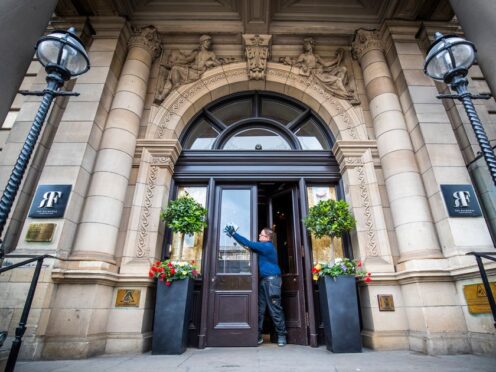Scotland could have the “first true visitor levy” in the UK, MSPs have been told, as Holyrood passed legislation that will give local councils the power to introduce such a charge.
Employment and investment minister Tom Arthur said the legislation, which passed by 83 votes to 27, with four abstentions, would give councils a “significant new tax power”.
Local authorities will be able to impose a charge on those staying in hotels and bed and breakfasts, self-catering accommodation and campsites and caravan parks.

Mr Arthur said the Scottish Government was also “open to introducing” a similar levy on cruise ships, with a consultation to take place later this year.
He added that ministers would also look at “any workable proposals that could be brought forward” for a charge on motor homes.
Mr Arthur told Holyrood he was “committed to engaging on these matters, both on a cruise ship levy and indeed on potential further measures we can explore with regards to motor homes”.
He spoke as MSPs debated the Visitor Levy (Scotland) Bill, with the minister saying a charge on overnight stays could be a “force for good”.
With money raised to be invested in the local area, the minister said the levy “has the potential to be an important tool enabling investment in the local economy, and supporting an important industry in Scotland”.
Mr Arthur said such charges are “common in many parts of the world” and he was “proud” that the Bill “will create the opportunity for the first true visitor levy in the UK”.
He added: “Twenty-one European countries have some kind of visitor levy, and I believe it is right that Scotland has the ability to add to that number.”
Any scheme in Scotland would take into account “good practice from around the world”, Mr Arthur pledged, saying there would have to be “genuine, effective local consultation” by councils before any charging system is brought in.
It would have to be “clear and transparent where funding raised by a visitor levy is being used” – with the minister saying the cash could be used to promote local areas, help with housing if this would benefit the tourism sector, or contribute to regeneration work.
While the Bill contains exemptions for children and young people, and for disability benefit recipients, the Tories – who opposed the legislation – argued there needed to be a more “robust” exemption scheme.
Housing spokesman Miles Briggs said: “Scots will be pretty unhappy when they realise that they will have to pay a 10% tax to stay in a hotel when their house is flooded, when they are going to hospital with their children they will be paying this tax.
“Many people when they see that will question why Parliament has not brought forward exemptions.”
Conservatives and Labour said the money raised from any charges should not be used by councils to “make up for funding cuts from the Scottish Government”.
Labour’s Mark Griffin said the levy would be a “shot in the arm for hard-pressed local authorities”, but added: “Revenue crucially must not be used to replace funding for core local services.
“In the face of the swingeing cuts imposed by this Government, any revenue that is raised must be used to improve the tourism offering and the services tourists appreciate and visit Scotland for.”
